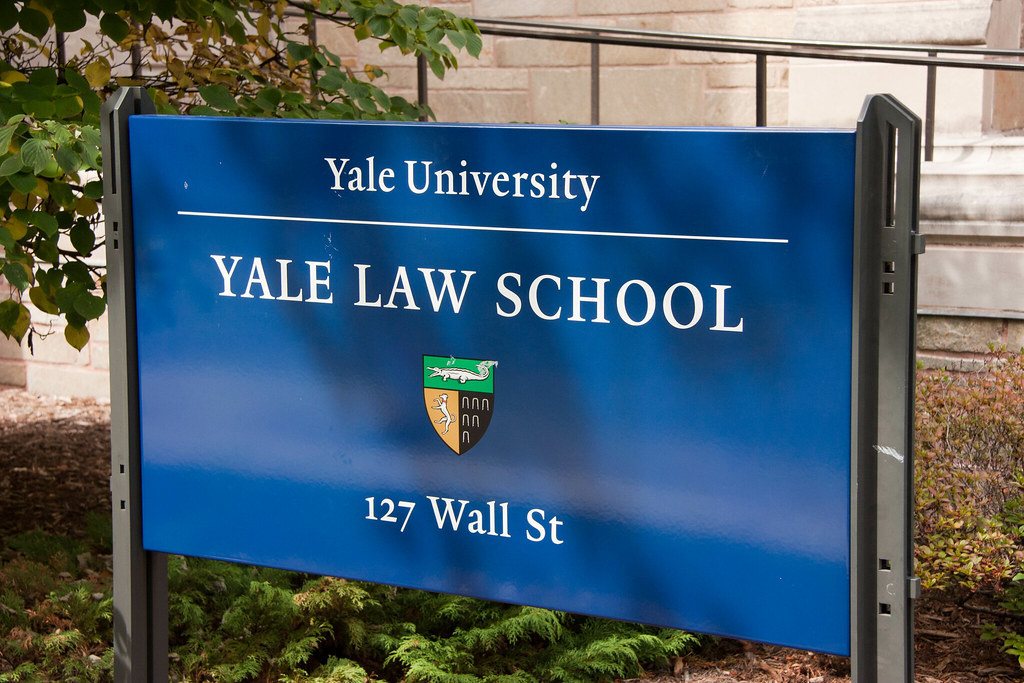How to Get Into Law School | Important Steps Towards Becoming a Lawyer Explained
Getting into law school is a huge undertaking and one that should not be taken lightly. You don’t want to run through the gauntlet of the LSAT and law school applications just to find that this reality can often be disappointing. Though we don’t have any reality bending gems and a certain gauntlet that comes with it, we can provide you with this guide on how to get into law school which I would argue is the next best thing.
Before we get into the meat of it though there are a couple of caveats. First this guide is aimed toward those who already completed their undergraduate degree and are looking to take the LSAT and start applying for law school. Secondly, we will just hit upon the broad points and solid advice on what to consider when applying to law school. If you want specific tips and recommendations on how to prepare for the LSAT, you can take a little detour on our article on these LSAT prep books and which one would be best suited for your particular situation. Don’t worry, we’ll be right here for you when you come back.
The LSAT is a huge undertaking but we’re here for you. If you’re stressed about trying to figure out the best prep course to take, don’t worry here’s a list of LSAT prep courses we reviewed. You should be able to find one that best suits your needs. Why such a big focus on the LSAT? Well you’ll have to understand law school admissions.
With all of that in mind, let us start with the most important but often overlooked question that aspiring lawyers should ask themselves: whether or not law school is right for you.
Determine Whether Law School is Right for You
The most important part of applying to law school is making sure that you want to apply while asking yourself should I go to law school. It’s an often overlooked part of becoming a lawyer. Most people get taken in by the Hollywood depiction of the lawyer lifestyle from the corner office to the tense arguments in court. In reality, you will spend countless more hours doing research, reading, and writing than arguing in court.
With that in mind, one of the best things you can do as you’re studying pre law or any undergraduate major is to work at a law firm. Though this experience might not be particularly useful for your law school application, it will give you the knowledge and understanding of what it is like in the day to day life of a lawyer. This is the best way you learn if the actual life of a lawyer separated by the glitz and glam of Hollywood would appeal to you. If you already have a job or can’t get a foot into the door of a law firm, another good option is to talk to currently practicing lawyers. Ask them questions about their lifestyle that are the most pertinent to you from salary to work life balance to the job market itself.
Do you know how much law school costs?
It goes without saying that law school is expensive. Some might even say prohibitively so. Just by looking at the top 10 law schools, you would be paying more than $60,000 a year and in some cases by a lot more. At this point you might reasonably ask yourself, how long is law school? It takes at least three years to complete law school. Compounded by time, you can easily find a bill that will cost you at least $200,000. Then including factors that are seldom thought about or well understood like interest payments, you might find the final total bill when the dust settles to be many more than your expectations.
So is a law degree worth it? Of course you would think that the lawyer's huge salary would perfectly balance the high cost of education and it could but there's a huge caveat to this. If you look at the average salary of a lawyer, it does not sound like that big of a hurdle to pay off your student loans in the short term. However if you take a closer look, you can see that there seems to be two pay scales. There is an elite group of newly graduated attorneys that get the highly competitive and sought over jobs and there are the rest that earn from $40,000 to $70,000. But when you take a look at a longer time frame it is a lot more manageable so be sure to see this as what it is: a long term investment.
Apply to Law School
Before you can become a lawyer, you need to go to law school obviously. The process of getting into law school is pretty straightforward as anyone would tell you but the devil is in the details.
In general, you should always be looking to build a strong application starting from the moment you choose your undergraduate major. A good rule of thumb is to choose a difficult major you’re interested in while maintaining a high GPA. Some of the best majors for law school that accomplish the goal mentioned above are specific law majors such as criminal justice. If you are able to accomplish that, you should aim to be strategic in your extracurricular and work experience. It is better to go deep in a particular field than go wide in many. Many law schools are looking for candidates with deep knowledge of a field.
If you already graduated it’s not too late. You should take the time now to really prep hard for the LSAT or GRE.
Understanding law school admissions
As mentioned before, there is a general checklist that you have to complete before applying to law school .First, you must have an undergraduate degree from an accredited college or university. Though unlike medical school, there is no real requirement on which major you need to choose or recommended course list. Secondly, you will want to take the LSAT. Though there are some colleges that do not require an LSAT to apply, we here believe it is the best to take any advantage you can take.
So this brings us to why we place such a huge emphasis on the LSAT even if you just found our site recently and have not been able to put our undergraduate recommendations in action. If you want to ask is GPA important for law school? The answer is yes. Law school admissions care the most about two factors: your GPA and your LSAT score. If you already graduated from your undergrad program, your GPA might as well be carved in stone unless you decide to get a masters. The LSAT is the best way to improve your prospects regardless of what happened in your undergraduate schooling.
Your GPA and getting into law school
However, you still should not underestimate the power of your GPA when it comes to law school admissions. A stellar LSAT score is the icing on the cake if you have a strong GPA but even a great LSAT score can only do so much if your GPA is lacking. The reason why law school committees put such an emphasis on your GPA is because it is often considered an indicator of future academic performance.
When you take your LSAT, the LSAC will also gather information by averaging all your course grades you received during your undergrad into a single score. This can lead to some interesting scenarios where your LSAC score and your GPA score the university provides you will differ. For example if you retook a college course for a chance to improve your grades, your university GPA will look higher than the LSAC GPA since they will take the lower grade into account. However for any courses you took after graduating, the LSAC will not consider your grades. Be sure to read up upon how LSAC calculates your GPA before doing anything to boost it. You don’t want to do a lot of hard work for nought.

Your LSAT score and getting into law school
If you already graduated college, then you probably just skimmed over the previous section. As mentioned before, the only thing you can do now is to hit the books and hit them hard. This is going to be the most important test in your life and you better be ready since this is the main factor you can control now that has a major influence on which schools you get accepted into and which schools will reject you.
As a result, you don’t want to apply to law school with a low LSAT score. What is considered a low score? Usually anything below 160 is considered low and you should consider retaking the LSAT if you received a score below that point. Though it is possible to get into law school with such a score, it is unlikely that you’ll find good career prospects after graduating. Though harsh, it is the end goal that you want to keep your eye on. There is no point of attending law school if you do not get the career benefits from it.
I’ve heard some people ask me, “Can I take the bar exam without going to law school?” Though the answer to that is technically yes there are a couple of caveats. First you need to be in a state that allows it, but you still need some sort of law school experience. I recommend going through the straightforward LSAT route. It’ll give you the requisite experience you need and the Bar is a mountain compared to the LSAT.
Prep for the LSAT
Hopefully by now we have drilled how truly important the LSAT is into your skull and now it is the time for action. There are many different ways one can prepare for the LSAT and they can be as unique and varied as snowflakes but in general they encompass a few main ideas.
The first and most common one is to take an organized class. Usually this would mean in person class with an instructor well versed in the material. However, that is not the only option as many places also provide online courses as a more flexible alternative. Some people eschew the class for a more private setting and opt to hire a tutor, hoping that having the undivided attention of the teacher will give them an edge. Lastly, there’s the option of going at it alone. Though usually cheaper than the former alternatives, it requires a lot more willpower. Each of these have their pros and cons that we will discuss and it is probably best to choose a mixture of the options.
LSAT Courses
If you type LSAT into your internet search bar the first thing that you would be greeted with is a long list of LSAT prep courses. With this many options, it works in your favor to be picky and precise on what you choose. The best LSAT courses will give you a good overview of the LSAT and provide you with the tools you need to improve your score.
Things such as being able to review problems with the class and tools to check your progress from week to week can prove invaluable as it not only saves on the time you will be spending on prepping but also makes that studying even more efficient.
Other more intangible benefits of an LSAT prep course is that you can benefit from the structure and accountability that comes naturally from participating. The LSAT course you take will already provide you with a path to prepare so you don’t need to spend time figuring out what you need to study in the first place. The peer pressure of studying in a group also confers benefits because if you are like me, you would not want to be the only one that didn’t finish the problem set the day it was due. The major con here is the price. Though you can find some budget options, most of the time it can be quite pricey.
Private tutors
But if you can spare no expense, then there might be a more efficient path to take. With a private tutor you get all the benefits of a LSAT course but now the teacher can focus on one person, you. With this level of focus, your tutor will be able to tailor the prepping material to your individual needs. LSAT courses are inflexible. If you already have a good mastery on a certain aspect of the LSAT, a private tutor will help you accelerate to the next step. If you require more time, a tutor will be able to provide more resources and help you get the prep you need. With a LSAT course, you are at the whim of the class schedule and course layout.
However, this level of personalization does usually come at a cost higher than the average cost of a LSAT course and that’s only one possible con. The most obvious con is that it is hard to judge the quality and expertise of a tutor especially if you don’t have much information to go on. Though word of mouth can give you some extra points of information, the tutor might not be suited for your needs. Additionally if you live in a low population or rural area, you might have limited options.
Self study
Lastly, there is always the ever popular self study. You can find useful prep materials online such as our site and then all you’ll need is some paper and pen to start. Though the cheapest option of the three since you’ll only need to obtain the learning material, it does require some willpower and focus for a consistent result. If you’re easily distracted by online cat videos, then this might not be the best course for you.
In addition to willpower, you will face problems as you self study that will be hard to solve on your own. We’ve all been there wondering why the answer of that question is the way it is. Without a tutor or someone well versed in the material to guide you, you might get lost within your own thoughts and miss the forest for the trees. The great benefit of having the tutor is that you’ll better navigate around any obstacles you face while prepping.

A combined approach to studying for the LSAT
Though it might be tempting to choose only one of these possible paths, the best approach will actually be to choose multiple options that best fit your unique situation. For example if you’re just starting on your LSAT journey, then it will probably be best to try all three. The LSAT course will provide you with the necessary background and a broad outline of the test. A private tutor will help you more efficiently tackle any problem areas you might have while providing additional resources to hone your test taking skills. Additionally, by doing your own studying you can figure out which areas you seem to understand well and uncover areas which you don’t.
If you’re more cost conscious, then you can venture on your own and see how you fare with a couple of prep materials and some practice tests. If you see that you might need a little bit more depth in your studies you can look for a prep course to take. If you struggle with your first couple of LSAT practice tests, then a private tutor will be better suited to uncover and shore up your weaknesses. This is especially true if you’ve already taken the LSAT and seem to hit a wall. However, be sure to thoroughly vet any tutors if that’s the case.
Choose a Range of Law Schools
After you have taken the LSAT and received your score, you can take the next most important step, choosing your list of law schools. Since law school admissions is a competitive process you should apply to a wide range of schools. I would usually recommend about 20 schools that range from ones you have a high chance to get into to those that you dream of at night. This process is made much easier with LSAC’s Credential Assembly Service so don’t be intimidated by that number. With strategic thinking, you’ll be able to ensure your admission to at least one law school and have negotiating power for scholarships and other financial aid.
You should look for an equal amount of safety schools, target schools and reach schools. If you’ve ever had a meeting with a college counselor these terms should be familiar to you. If you haven’t, a safety school is pretty self explanatory. It is a school whose median scores for GPA and the LSAT is well below the GPA and LSAT score you have. It is a pretty safe bet that you’ll be able to get admission there. For target schools, your GPA and LSAT is around the median LSAT and GPA score. Though your admission is less likely, you’ll still have a fighting chance and with admission here you might be able to leverage any scholarships received from your safety school to some financial aid in your target school. Your reach schools should be ones that have median scores well above yours but you miss all the shots you don’t take right? As for why we utilize median LSAT score and GPA over law school acceptance rates, it is because they give you a better picture of your admission chances.

Geographical limitations
Of course school rankings are not everything. Everybody is unique and has their own factors on choosing which law school they would like to attend. For some people that might include the location of the school itself.
We are all tied to different locations depending on family ties, career availability, and maybe a sense of adventure. To many people these are non-negotiable and if you are one of them it is best to decide which schools mean the most to you in the certain geographic area you want to stay within. Since many places don’t usually have 20 or so law schools within a reasonable distance, you might have to apply to certain schools outside your region but that can be used as leverage when negotiating financial aid from schools that you do want to attend. Be sure to apply to a safety school within your area though or else you might find yourself in a bad position.
Financial constraints
The other main consideration most people take into account when applying for law school is financial constraints. If being able to pay for law school is a large question for you, then you should apply to more schools than is recommended for a higher possibility of getting a law school admission with scholarship. With those scholarships in hand, you can go to the schools that you’re aiming for and negotiate for higher financial aid.
Additionally it would be wise to strongly reconsider offers by higher ranking law schools that do not come with financial aid. Though ranking matters in law school, it matters the most whether or not you can complete it. There’s no use of going to a higher ranked school if you will have to drop out later on due to financial reasons especially if you were to get loans to support yourself. Nothing is worse than having the debt of a law school education without the degree to back it up. It is probably best to go for the lower ranked school with financial aid as it’s more fiscally secure.

Specific career goals
Lastly an aspect most people don’t consider is career opportunities. If you don’t have a specific career goal or law firm that you want to work for, don’t worry as you’ll be able to find that out during the course of your education. But if you do have a firm or path you want to aim at then it would be best if you do your research.
This applies particularly if there’s a prestigious law firm that you would like to apply to. Most high level and hard hitting law firms only recruit from the top law schools in the nation. The best way to find out which schools will give you your best shot is to do research in the firm and see which schools most of that firm came from. That should give you a good idea of which schools to aim for. If you are more interested in public interest organizations, non-profit companies, or federal work then this won’t apply as much to you. They use different processes that rankings don’t have a direct affect over.
Complete Your Law School Applications
Now that you understand the general concepts when it comes to deciding whether or not to pursue a career in law and picking which schools to apply to, you can start the actual process of applying.
You should already have a LSAC account after taking the LSAT. If you don’t, you should go to LSAC and create an account and register for the LSAT. If you’re a constant procrastinator, then nothing works better than a deadline so be sure to apply before applications open. After finishing the LSAT, you should research which law schools to apply following the guidelines we outlined above. If possible, it would also be useful to meet the law school recruiters to get a better understanding of the differences between them. You can ask them what is law school like and how they differentiate themselves from other schools.
With your list of law schools you want to apply to, you should then register for the CAS a month or two before the first law school application deadline. After requesting your transcripts and getting letters of recommendations, just wait for the acceptances to roll in.
Letters of recommendation
Now that we went over the general outline on how to apply to law school, let us focus on some critical areas. One of the main critical areas are the letters of recommendation. Nothing is worse than a negative recommendation and a great recommendation can really set you apart so it is important that you get a list of professors and colleagues that will be willing to write one for you. Since these can take a while to compose and write, don’t expect a quick turnaround for the letters so it is best to plan ahead.
It would be best if you gave your recommenders a timeline of when you’re expecting it though since it is important to get those recommendations within the deadline. Additionally, your recommenders will probably appreciate it if you give them more information on what your current goals are and what aspects you would like to highlight if possible. Don’t give this as an ultimatum though but more as a gentle suggestion. It’s a rule of thumb to have them completed a month before applying as it can take LSAC a handful of weeks to process them.
Your resume and personal statement
Your resume and personal statement is also critically important. I know how easy it is to forget to update your resume but now is the time. Dust off your previous resume and update them with your degree and relevant experience. It’ll be good to mention any extracurricular activities that’s relevant to law and any work experience you might have. By putting work experience on your resume, you can show law schools that you have knowledge of how the world outside of academia operates.
With your personal statement, many people draft a generic one that they send out to all the law schools they apply to. Though I would not say that is a bad practice, I would point out that you might have more success if you personalize it to the law school you’re applying to. Granted that takes more effort so I would write the most personalized essays for the schools you really want to gain admission to while personalizing a standard template for those schools which you don’t have much interest in. Be sure to read carefully the law school requirements because some schools require specific personal statements. If you miss that then you have cut your admission chances drastically.
Law school applications
Like every guide on how to get a law degree will tell you, it is best to start out early. You want to start your applications as soon as they become available on the LSAC site especially since biographical data about yourself is pretty simple to fill. The one stumbling block some people might face is when the law school asks about your criminal history. It is vitally important that you disclose any arrests or convictions or you will suffer great penalties.
Since the bar will conduct a background check when you apply for a law license, you want to come clean. In the case of minor criminal issues, you can most likely still receive the license so it’s best if you disclose however minor the arrest may be. Hiding anything would be considered a breach of trust and you will most likely not gain admission to any law school.
When to submit your law school application
After finishing your application, you should submit them as soon as possible and at latest, during the beginning of december. Though applications are not due until the following year, most law schools have a rolling admissions process that means they start accepting students as soon as they apply. To get ahead of this, it’s best to apply early before the seats fill up. It’ll only work to your favor.
Now that you know how to get into law school, don’t underestimate the effort and commitment you need. From the LSAT to the admissions itself, it takes a certain person and you should make sure that law school is right for you. Now you’ll just need to know how to prepare for law school itself. We will have those resources for you.
To wrap up, here's a cool video with even more tips:


